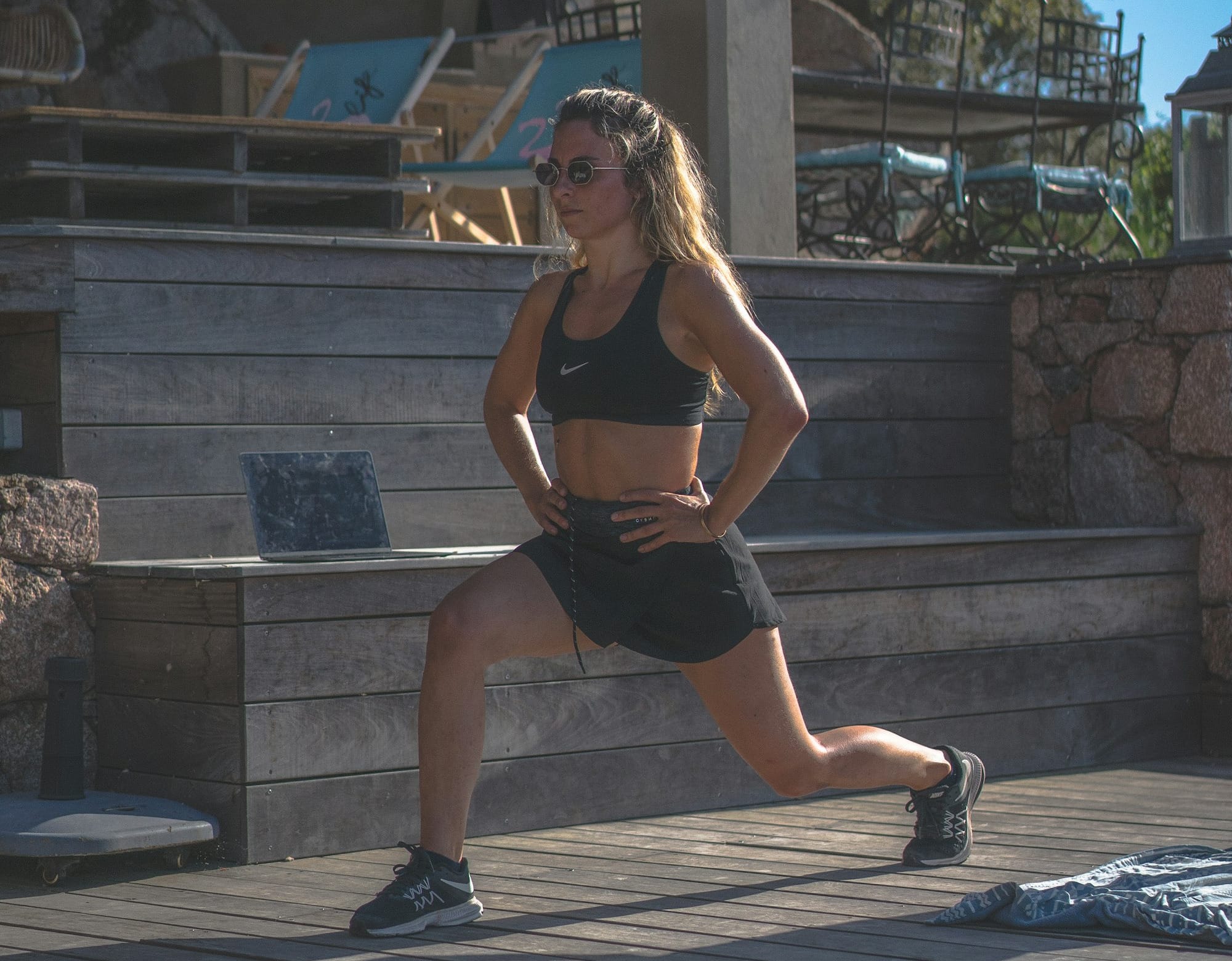How Exercise Can Strengthen Your Bones

Bones Adapts to Stress
Bones are always adapting to the stress placed upon them.
When bones don't get much use due to reasons like immobility or inactivity like prolonged bed rest, the body perceives less need to maintain bone density, which will lead to a decrease in overall bone density.
The opposite is also true; when bones are subjected to mechanical stress, like during weight-bearing activities or resistance exercises, the body responds by increasing the bone's density.
In a nutshell, More stress in bone means more bone density; less stress means less bone density. Basically a use it or lose it kind of thing.
This explains why astronauts returning to Earth have lower bone density than the average person; the lack of gravitational pull in space results in less tension on their bones.
What Exercises Increase Bone Density?
As you may have already guessed, any exercise that places tension on a specific area of the bones increases bone density in that area.
These exercises include but are not limited to squats, bench presses, or even simple movements like jumping and running.
Of course, consistency is a major factor. Your bones won’t increase their density just from experiencing tension once; they need to be subjected to repeated tension in order to adapt.
Does Exercise Help Osteoporosis Patients?
Absolutely! Exercise can significantly help osteoporosis patients; in fact, it's often recommended as part of a comprehensive treatment plan.
Unfortunately, the type and intensity of exercise matter a lot, as some forms of activity are more dangerous than others for individuals with osteoporosis.
For individuals with osteoporosis, it is recommended that you perform an extensive warm-up routine, even if the main exercises are light in nature.
Can Exercise Prevent Osteoporosis?
Exercise cannot completely prevent osteoporosis; age comes for us all eventually.
Still, exercise can help by reducing the risk and managing osteoporosis.
Click for more details
"Exercise or physical training can prevent osteoporosis in the elderly as a non-drug preventive strategy. The interaction of mechanical loading, hormones or cytokines, and signaling pathways induced by exercise increased bone formation and reduced bone resorption, leading to the maintenance of healthy skeleton."
Ways To Strengthen Your Bones
Resistance Training

Lifting weights or using resistance bands can be very beneficial for strengthening both muscles and bones.
I suggest incorporating exercises that target major muscle groups, like squats, lunges, and push-ups, to stimulate bone growth and enhance overall strength.
Click for more details
"Physical activity helps maintain bone mass, muscle mass and body balance. Several meta analyses have shown that the bone fracture risk decreases with an increase in physical activity (15)."
Source: https://www.jstage.jst.go.jp/article/jnsv/61/Supplement/61_S139/_article
High-Impact Activities

High-impact exercises or activities, such as running and jumping, apply stress not only to the muscles but also to the bones, which encourages your body to increase your bone density.
If you are at higher risk of fractures or have existing bone conditions (like osteoporosis), then I recommend you to perform lower-impact exercises instead.
Avoid / Quit Smoking

Several studies claims that smoking weakens bones and reduce bone density, which increases the risk of fractures.
Click for more details
"Excessive intake of sodium, phosphorus, caffeine, alcohol, and
smoking are detrimental to bone health and should be avoided."
Source: https://www.jstage.jst.go.jp/article/jnsv/61/Supplement/61_S139/_article
Regardless if it is true or not, I encourage you to quit smoking to not only possibly improve your bone health but also overall well-being.
Limit Alcohol Intake

Excessive alcohol consumption can negatively affect bone health by disrupting calcium balance and nutrient absorption.
Consuming alcohol every now and then is fine, just don't be dependent on it.
A strong drink is given to the terminally ill, who are suffering at the brink of death. Wine is for those in depression in order to drown their sorrows. Let them drink and forget their poverty and misery. But you are to be a king who speaks up on behalf of the desenfranchised and pleads for the legal rights of the defenseless and those who are dying. Be a righteous king, judging on behalf of the poor and interceding for those most in need.-Proverbs 31 : Verse 6-9
Limit Caffeine Intake

Excessive caffeine consumption can interfere with calcium absorption and increase calcium excretion, potentially affecting bone density over time.
To support bone growth and overall bone health, it’s advisable to consume caffeine in moderation and ensure adequate calcium and vitamin D intake to balance any potential negative effects.
Proper Nutrition

To support your bone health, I recommend focusing on a balanced diet rich in:
- Calcium: A crucial component of bone tissue. Include dairy products (milk, cheese, yogurt), leafy greens (kale, spinach), and fortified foods (orange juice, cereals) to ensure adequate intake.
- Vitamin D: Essential for calcium absorption, which you can get from sunlight, and meat like fatty fish (salmon, mackerel), egg yolks, and fortified foods.
- Protein: Essential for the production of collagen, a key protein that forms the structural framework of bones. Protein is primarily found in meat, but it can also be found in beans, nuts, and other sources.
Additionally, ensure a balanced intake of magnesium, phosphorus, and vitamins K and C to cover all essential nutrients for strong bones.
Exercises That Aid Osteoporosis Patients
Walking / Running

Walking is a simple, low-impact exercise that helps strengthen bones in the legs and hips.
A higher-intensity option is running, which is not recommended for individuals with osteoporosis or those at risk of bone fractures.
Stair Climbing / Hiking

Stair climbing or hiking builds strength in the legs and hips by engaging the muscles and bones with each step.
Jumping Rope / Short Jump Squat

Jumping rope is a higher-impact exercise that strengthens bones in the legs, hips, and spine.
Alternatively, performing a short jump squat works as well, just without the need for coordination.
Basic Push-ups / Bench Press

Push-ups, when it comes to bone strengthening, target the bones in the arms, shoulders, and upper spine.
However, not everyone can do push-ups, so a good alternative is to perform a bench press with a reasonable weight.
Lunges / Weighted Lunges

Lunges are an effective exercise that strengthens the bones in the legs, hips, and lower spine by engaging the muscles with each step.
A more advanced option is weighted lunges, which increase the intensity and provide additional resistance, helping to further build bone density.
THINGS TO KEEP IN MIND
Any Exercise Will Do
As mentioned before, any exercise or activity that stresses their bones enough will experience an increase in bone density after a period of time.
Consistency is Key
Providing tension and stress on the bones just once or twice is not enough; bones will only become denser if you force them to adapt through consistent and repeated stress.
Drink More Water
Chances are, you are not drinking enough water than you need to.
Why should I care about drinking enough water? - You, probably
That's because proper hydration is what keeps your joints remain lubricated and that nutrients are effectively delivered to where they are needed in the body.
Copyright ©2024 by Marshall Vulta




Comments ()